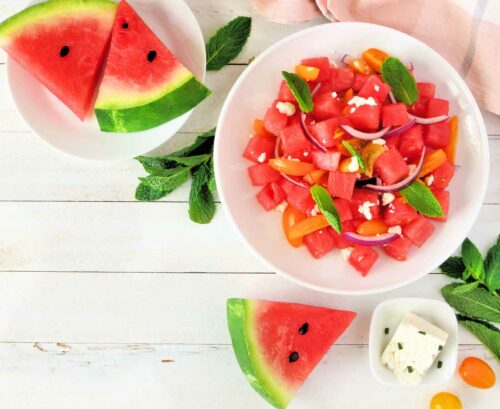
Watermelon is a popular fruit but how healthy is it for you? Healthy Food Guide investigates.
Most of us have fond memories of hot summer days, sitting outside, biting into a juicy slice of watermelon and spitting out the pips as far as we could.
Watermelon is one of the most well-known and loved of all the melons but, given it’s made up of around 94 per cent water, how healthy is it?
Watermelons started off in Africa, but the original fruit was hard and bitter or bland – nothing like the sweet and juicy versions enjoyed today.
Health benefits of watermelon
The fruit is low in kilojoules/calories and contains a range of antioxidants, including lycopene, which has been associated with reduced cancer risk, and beta-carotene which helps with eye health, immunity and reproduction.
Can you eat watermelon seeds?
You may recall tales from your childhood warning you never to swallow the seeds, in case you grew a watermelon vine in your stomach. This, of course, is pure myth. In fact, you can feel free to enjoy watermelon without spitting out the seeds, because they provide gut-friendly fibre and contain small amounts of essential minerals.
7 healthy watermelon recipes to try:
Article sources and references
- National Geographic, 22 August 2015. The 5,000-Year Secret History of the Watermelon. Accessed 23 May 2022https://www.nationalgeographic.com/history/article/150821-watermelon-fruit-history-agriculture
- El-Adawy TA, Taha KM. Characteristics and composition of watermelon, pumpkin, and paprika seed oils and flours. J Agric Food Chem. 2001 Mar;49(3):1253-9. doi: 10.1021/jf001117+. PMID: 11312845.https://pubmed.ncbi.nlm.nih.gov/11312845/
www.healthyfood.com










